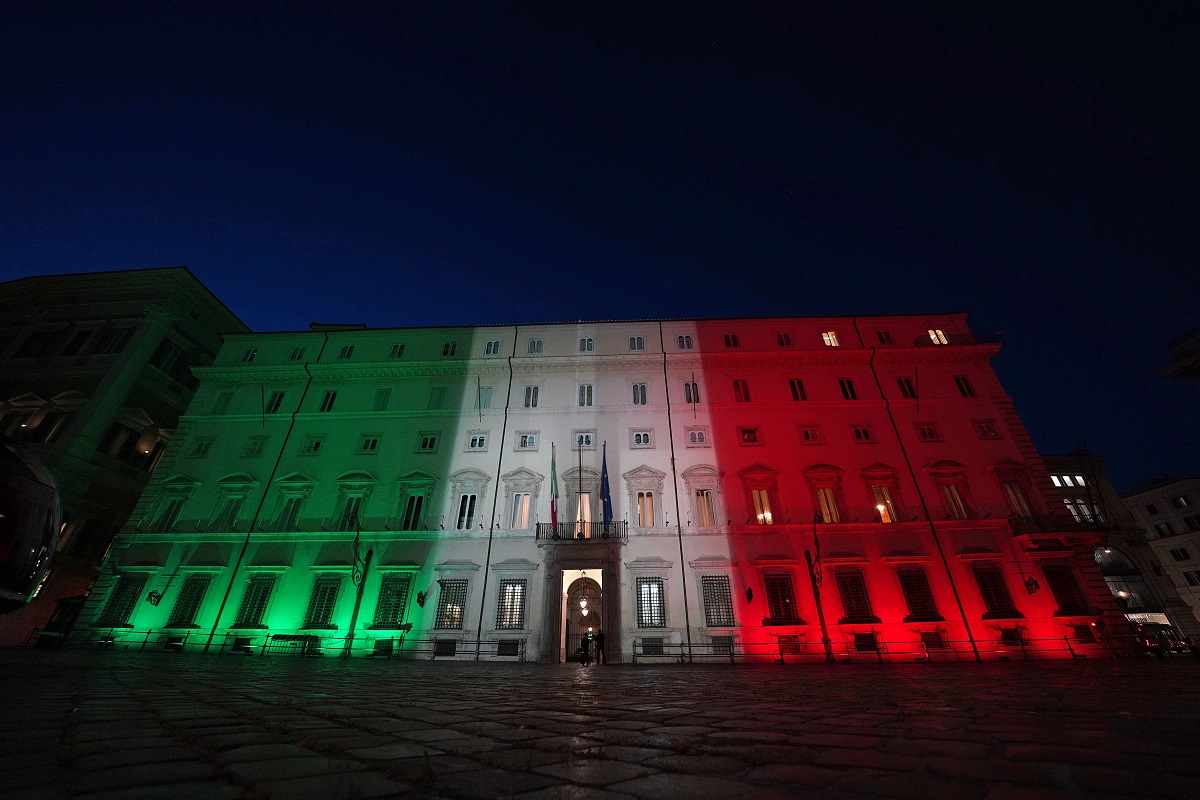On Thursday night, the Italian prime minister Giuseppe Conte met with several ministers and heads of delegation from the governing coalition for a check-up on the development of next-generation telecoms, known as 5G.
Ministers Roberto Gualtieri (economy), Stefano Patuanelli (economic development), Lorenzo Guerini (defence), Luigi di Maio (foreign affairs) and Enzo Amendola (European affairs) attended the meeting, hinting at the high regard in which the government keeps this thorny issue.
According to ANSA, the group reviewed the norms issued to keep the development of 5G in check, deeming them “well structured” and worthy of guaranteeing high security standards. Participants shared a “full understanding” of the potential risks linked to new technologies and of the need to continuously step up the game to ensure an adequate protection level.
They also agreed that the path for further development must happen “with the greatest coordination” between the government and the European Union (also zeroing in on the issue) with technological independence in mind. This includes the legislative level as well as the physical realisation of infrastructures.
The 5G debate essentially concerns the future of high-speed telecommunications – a powerful development catalyst per se – but it should also be framed within the ongoing “tech Cold War” between China and the US.
Italy has acknowledged the strategic security risks that come with the installation of Chinese-built tech in its next-gen infrastructure, originally called out by Washington, who deems Huawei tech a vehicle for Beijing’s espionage operations.
China rejects this notion, but its legal framework allows for it, meaning that the potential for espionage cannot be ruled out.
Accordingly, this summer the government issued very strict guidelines that greatly impairs the ability of telecoms companies to work with Chinese companies such as Huawei.
One of such measures is called “golden power” and it basically amounts to the government having the final say on matters concerning strategic areas, such as 5G, even if it means interfering in the dealings of private companies. A dedicated committee has been set up to oversee 5G.
Another measure concerns the creation of a “digital perimeter” to protect the Italian cybersphere. A series of national security centres with full access to the infrastructures is being set up and should be operational by early 2021. The absence of news on that front hints to good news.
However, these solutions may not be enough to appease the Atlantic ally – US President Donald Trump recently warned that he could cease to share intelligence with countries who do not weed out Chinese tech from their critical infrastructure.
The US is also actively undermining Huawei’s global operations by means of sanctions and curbs that make it harder for the company to rely on most commercially available chips.
The American Secretary of State Mike Pompeo will be visiting Rome next week (more on that here), and he will doubtlessly pressure the Italian government to join his 5G Clean Network initiative, entailing a group of countries banning Chinese equipment from their telecoms.
He will find allies in the Democratic Party, junior governing partner, whose members have taken an Atlanticist stance on the 5G issue.
Meanwhile, China is rejecting what it calls “baseless” security concerns, denouncing them as a US strategy. It’s also attempting to keep European countries committed to its tech, albeit with limited success, if the summer tour of foreign minister Wang Yi is anything to go by.
The chairman of Huawei Guo Ping declared on Wednesday that the company was “under attack” by the US, but remained committed to “help governments” around the world achieve their goals through their tech.








